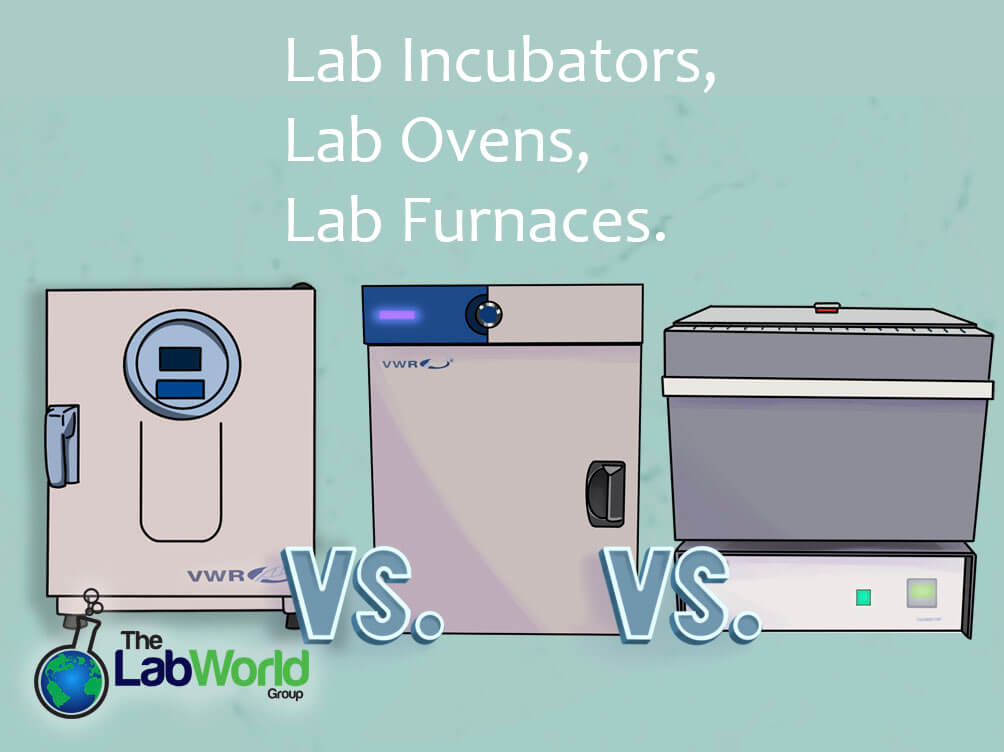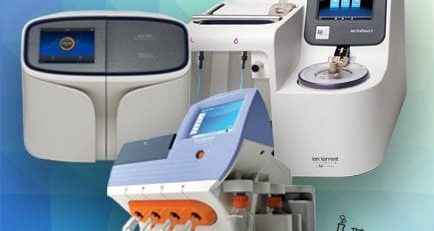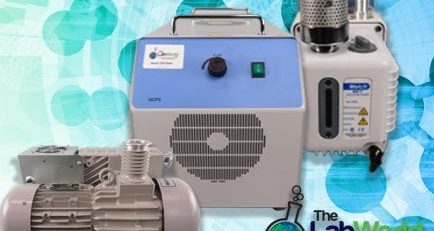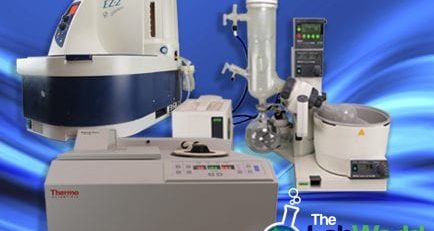
Incubators vs Lab Ovens vs Lab Furnace
Amanda2021-10-14T17:41:00+00:00Labs have a variety of instruments to turn to when the need arises for heating of samples. While fundamentally the application of heat is the same, there are key differences between how a lab incubator, a laboratory oven, and a muffle furnace perform that impact how they’re used.
Incubator Vs Oven: Which is right for you?
Both lab instruments offer a method of controlled heating and maintain conditions over time. Both are insulated against temperature loss and both have safety measures like independent thermostats to prevent thermal runaway.
But a lab oven is not the same as an incubator. What sets them apart?
Temperature.
Laboratory Ovens
A lab oven tends to run much hotter than a laboratory incubator, with a range between 70°C up to 250°C or more. The higher heats are naturally more drying and as such, the lab oven lends itself to applications like sterilization, drying, and testing materials.
A lab oven relies on convection heating, so samples are dehydrated without blasting them with direct radiant heat. Lab ovens also incorporate a vent to allow for humidity, VOCs, and fumes to escape. The result allows labs to dry out a specimen, bake a substrate or cure a sample with a slow bake and dehydration over time.
Lab Furnaces
Laboratory Furnaces provide the means for even higher ranges, over 300°C. These instruments also known as muffle furnaces tend to be quite small to stay potent and efficient. The compact powerhouses are lined with thick insulation for both heat retention and protection.
A lab furnace can reach temperatures upwards of 1700°C and run the gamut of applications from annealing to crystal growth, melting and incineration, bonding materials, and drying out components. Such high temperatures in both a lab furnace and a laboratory oven are therefore not compatible with organic material.
Function of Incubators
Lab incubators are by design, far more hospitable to organic samples. Their sole purpose is to create and maintain conditions ideal for growth. Incubators tend to run between 15 degrees above ambient temperatures and up to 70°C, depending on the need of the application.
Incubation of cells and microorganisms is happiest between 18 to 35°C, while bacteria growth can be range up to 70°C. Mammalian Cells operate best at 37°C because it’s the optimum temperature for enzymes where they’re most effective and active. Setting at a higher temperature can cause enzymes to denature. Lower temperatures can slow a chemical reaction down, which might be desired depending on the assay being performed. Refrigerated Incubators are ideal for just such a situation.
What are Refrigerated Incubators used for?
Refrigerated incubators or low-temperature incubators are designed to can be used to grow or prevent the growth of certain cells and tissues, as well as plants and insects, fermentation, water populations, and enzyme digestion studies. This includes BOD incubators for Biochemical Oxygen Demand studies.
Other Lab Incubator Features
Another area where laboratory incubators differ from a lab oven or furnace is environmental controls. Conditions such as CO2 levels to maintain pH levels, O2 for hypoxic applications, and humidity can all affect cell growth, and the incubator provides the means to control these elements for the best results. Within these ideal growth ranges, uses may also wish to incorporate a shaking function for even distribution of nutrients, for which incubator shakers fit the bill.
Final Thoughts
On the surface, it seems like a laboratory oven will cover heating applications and save room in the work area by having one instrument rather than two. However, it all comes down to what temperature is required to get the results you want.
Lab ovens just won’t go low enough to help your cultures grow. If you aim to provide the best environment for your samples to flourish, then an incubator is the way to go.
From general incubators to those with gas control, shaking incubators, and environmental chambers, we have you covered. We have a wide selection of quality used lab incubators all tested and validated and in stock. Contact us today and we’ll help you get set up with the right tool for the job.













